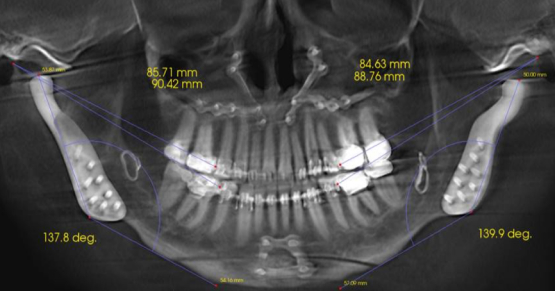5 Tips for Choosing Compliance Training Partners for OSHA
Training is a significant part of OSHA compliance. Ensure that you provide the correct type based on your dental team’s needs. Many times, the company you choose will not have the resources to support your entire team. Effective compliance training partners for OSHA, focusing on education, virtual services, and detailed expert guidance, make it much easier to protect your dental team from workplace hazards.

Determining your dental team’s OSHA training needs
When it comes to training, OSHA requires that you provide material based on the needs of your employees. Specifically, OSHA says “an employer must instruct its employees using both a language and vocabulary that the employees can understand.”
What does that mean for a dental team? Your OSHA training should focus on two key aspects: the educational level of your workers and the primary language spoken by your workers. One single training program may not be suitable for all your staff.
You also must consider all the different training materials you need. Workers who are exposed to patient blood and OPIM will need to take annual bloodborne pathogen training. Those who work with x-rays will need radiation safety training. Every time your office introduces a new chemical or hazard, you will need training on that.
This is why you need a compliance training partner for OSHA. The right one will help you provide all the materials your workers need, regardless of their education level or language. They will be able to train your staff quickly and efficiently, enabling you to stay focused while maintaining compliance.

5 Tips for choosing compliance training partners for OSHA
Some agencies bill themselves as compliance training partners for OSHA, but not all of them are the same. Some options are entirely DIY, where you gain access to a library of information but not much else. Others are more in-depth, but with that depth comes an increased cost. As you weigh your options, consider the following tips for selecting the right partner.
1. Choose an OSHA expert.
While OSHA has its own approved training provider list, these providers are mostly focused on heavy industries like construction or manufacturing. Dental offices will have more of a challenging time finding a specialist, as there is no specific guidance given beyond “follow the general protection clause.”
OSHA does offer a Voluntary Protection Program for businesses that would like to get a review of their OSHA compliance program without the risk of fines and penalties. It is important to note that the waiting list is long, and you are required to make any changes that OSHA recommends.
Alternatively, you can collaborate with a third-party vendor. Some individuals look for trainers who are “OSHA certified” though that is not technically a credential. OSHA Outreach Training is the closest the agency comes to offering certification, with graduates becoming Outreach Trainers. OSHA maintains a database of Outreach Trainers who are authorized to conduct 10 and 30-hour OSHA classes. You can check potential partners there.
2. Look for a library with variety.
The fact that OSHA does not have specific requirements for dental offices makes life a bit more complicated when it comes to choosing an OSHA training library. You must break down all the individual hazards in your office, which may be covered under different requirements. Bloodborne pathogens training, radiation safety training, and training on specific chemicals in your office will be required. Ideally, the vendor you work with will have variety in their library, allowing you to cover most of your training in a single space.
Also consider the language of your staff. OSHA requires training to be conducted in a manner that all your staff can understand. Unfortunately, many OSHA resources lack this diversity, offering only English options. A good program will allow you to obtain materials that have either been dubbed or subtitled in the correct language for your workers.
3. Seek flexible learning options.
Another issue to consider is the time investment for your dental team. Your hygienists have patients to see and not a lot of time to head off to training. An OSHA partner who offers flexible training options, both online and in person, would be the best choice.
Online tools may include classes that are remarkably similar to in-person instruction but are conducted via Zoom or another platform. While this is a great option, it is also helpful to have a self-paced, pre-recorded library. This will enable your team to complete the necessary training on a schedule that suits them.

4. Check documentation support.
You should be keeping records of your OSHA training, but it can be easy to forget and overlook all those certificates of completion. Some training platforms will include digital verification of completion or downloadable certificates that you can use to document your training easily.
5. Look for ongoing support and resources.
OSHA is not a static agency. Law updates, or even new interpretations of the law, will change the way you need to approach training. Work with a vendor who stays up-to-date on all the latest OSHA changes for the best results.
The success of your program depends on your choice of compliance training partners for OSHA. When you collaborate with an experienced vendor who can offer access to a variety of resources, you make your practice safer and stay in compliance.
SPEAR NAVIGATOR
Transform how your practice runs by engaging the team through
coaching and training
A guided path to excellence through structured coaching and self-guided resources that will align your team, streamline processes and drive growth. Transform your practice by implementing Spear’s proven playbooks for developing and retaining a high-performing dental team.

By: Spear Team
Date: May 11, 2023
Featured Digest articles
Insights and advice from Spear Faculty and industry experts


